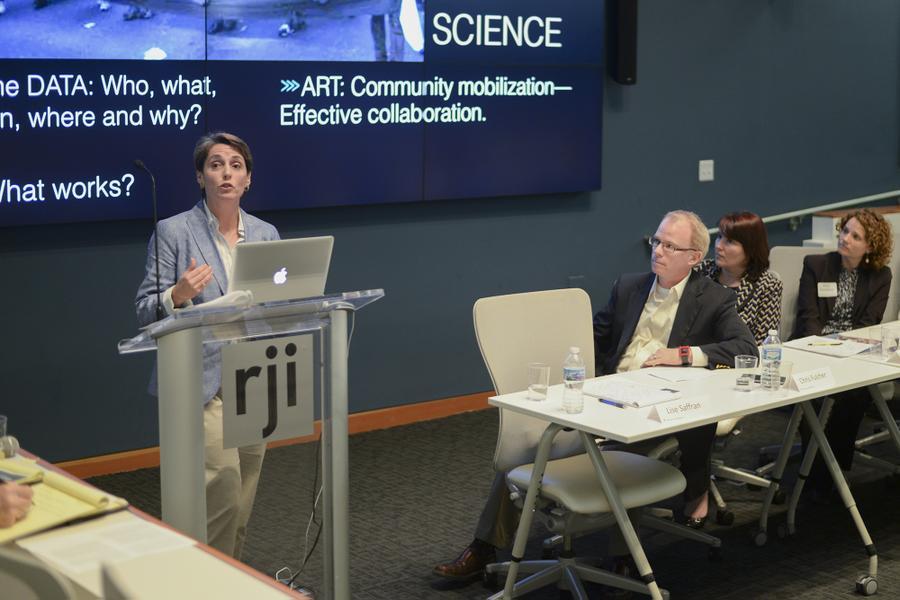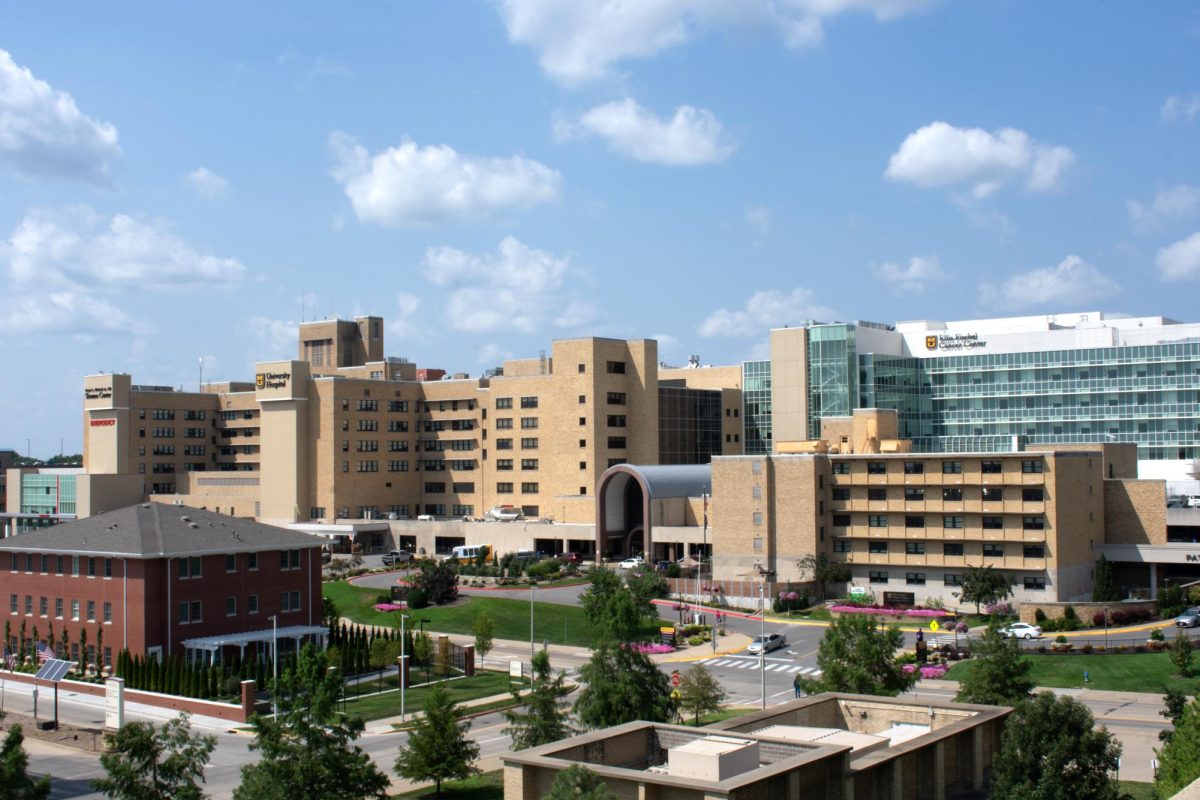From a former MU chancellor to first-year undergraduates, people of all ages came together in the Reynolds Journalism Institute on Monday to discuss problems with and solutions to world hunger issues.
The conference was the first one hosted by the Brady and Anne Deaton Institute for University Leadership in International Development. Chancellor Emeritus Brady Deaton, executive director of the institute, kicked off the inaugural conference with the theme “From Poverty to Promise.”
According to the [institute’s website](http://www.deatoninstituteconference.org/about/), the goal of the conference was to examine ways to analyze critical problems like food security, global health and economic growth.
The conference was split up into a morning session, from 9 a.m. to noon, and an afternoon session that ended at 5 p.m.
Four guest speakers discussed a range of issues during the morning session. Graduate students Bruno Miranda and Maria Rodriguez-Alcala, who study agricultural economics and rural sociology, respectively, started off the series of discussions with a presentation on how low-income farmers in Brazil impact the coffee market.
One of their main points is how to eliminate the disconnect between corporations and the farmers.
“If you don’t understand the locals, you’ll never find long term solutions,” Miranda said.
The second presentation was given by Anne Cafer, a graduate student studying rural sociology, who talked about smallholders, which are small locally owned farms. Smallholders play a role in Ethiopia’s agricultural industry.
She said it is difficult to convince Ethiopian farmers to try new methods of growing food. This is because they only grow enough to feed their families and they don’t want to risk starvation.
Since Ethiopian farmers use outdated techniques, 3.2 million Ethiopians are in need of emergency food assistance, Cafer said. However, she said, they are making some progress to update existing methods. The government is investing in a new crop called teff, which Cafer said could help improve the hunger issue in the country.
“Problems (will be) solved through innovation in soil sciences,” she said.
Michael Maw, a doctoral student studying plant sciences, gave the final morning presentation. He talked about improving the drought tolerance of “common beans” in Colombia.
The common bean is a staple to Colombians diet and is the main protein source for more than 4 million citizens, Maw said. He said it has many properties that make it similar to a soybean.
A big problem for farmers, however, is that the crop seasons for common beans do not match natural seasons. As a result, Maw said, there are shorter periods during which the crop can grow.
He said researchers are working on improving low fertility, toxicity, pest resistance, heat and drought tolerance, and undesirable color in order to make common beans easier to grow and more desirable to eat.
Between the morning and afternoon sessions, guests could walk around the Palmer Room in RJI to look at posters of graduate students’ research.
“It was an opportunity for graduate students and even undergraduates to showcase the research that they’re doing on campus that relates to global health and poverty and specifically on an international basis,” said Kara Riggs, a graduate student studying plant sciences. “This gave all students an opportunity to share their research on a poster.”
Deaton opened the first afternoon panel, which discussed smallholders, risk, and individual decision-making in developing nations.
According to the institute’s website, the panel consisted of: Corinne Valdivia, associate professor for agricultural economics; Tom Johnson, professor of agriculture and applied economics; Max Summers, MU Extension’s transition team leader; Jere Gilles, director of graduate studies for rural sociology; and Simone Dietrich, associate professor of political science. Deaton said he had seen all of these speakers present their research in the past.
Graduate student Claire Donze, who helped organized the conference, said she learned about smallholders and their effect on the human environment and technology.
“For example you could have all the technology in the world available to you, but if the (people involved) are not willing (to get these technologies,) the technology isn’t relevant,” she said. “(It’s about) human environmental context when trying to implement solutions like this.”
The second panel discussed the international impact of ebola.
According to the website, the panel was made up of Lise Saffran, director of the master of health program; Chris Fulcher, assistant research professor of rural sociology; Amy Dunaway, associate director of the Health Communication Research Center; Ioana Staiculescu, research specialist at the Center for Health Policy; and Linda Jo Turner, program director at the Missouri 4-H.
Deaton said it was logical to discuss how different fields had been affected by the ebola outbreak and how to help economies in affected countries recover. Some of the different disciplines they explored were public health, rural sociology and health communications.
Riggs said that public health is an interdisciplinary field in its core.
“You need so many different disciplines working together to provide global public health,” she said.
Peterson said Saffran had done the most work researching the topic and spearheaded bringing the panel together.
“The focus throughout all of that (panel) was to bring together people who were working on these issues in diverse ways across disciplines,” she said.
After the panel, Deaton closed the event by talking about the future of the institution.
“This is just the beginning of an ongoing dialogue,” he said.
Deaton Institute spokeswoman Lacy Peterson said Deaton had intentionally chosen the panelists from different disciplines to create a “complete picture on those issues.”
Deaton said he was pleased with the outcome of the conference.
“We were excited by the turnout and it really exceeded our expectations,” he said. “It was a great response from the community which I think shows their interest and commitment to being involved and bringing the best of what we do as a university to bear on some of the most severe problems in the world.”














